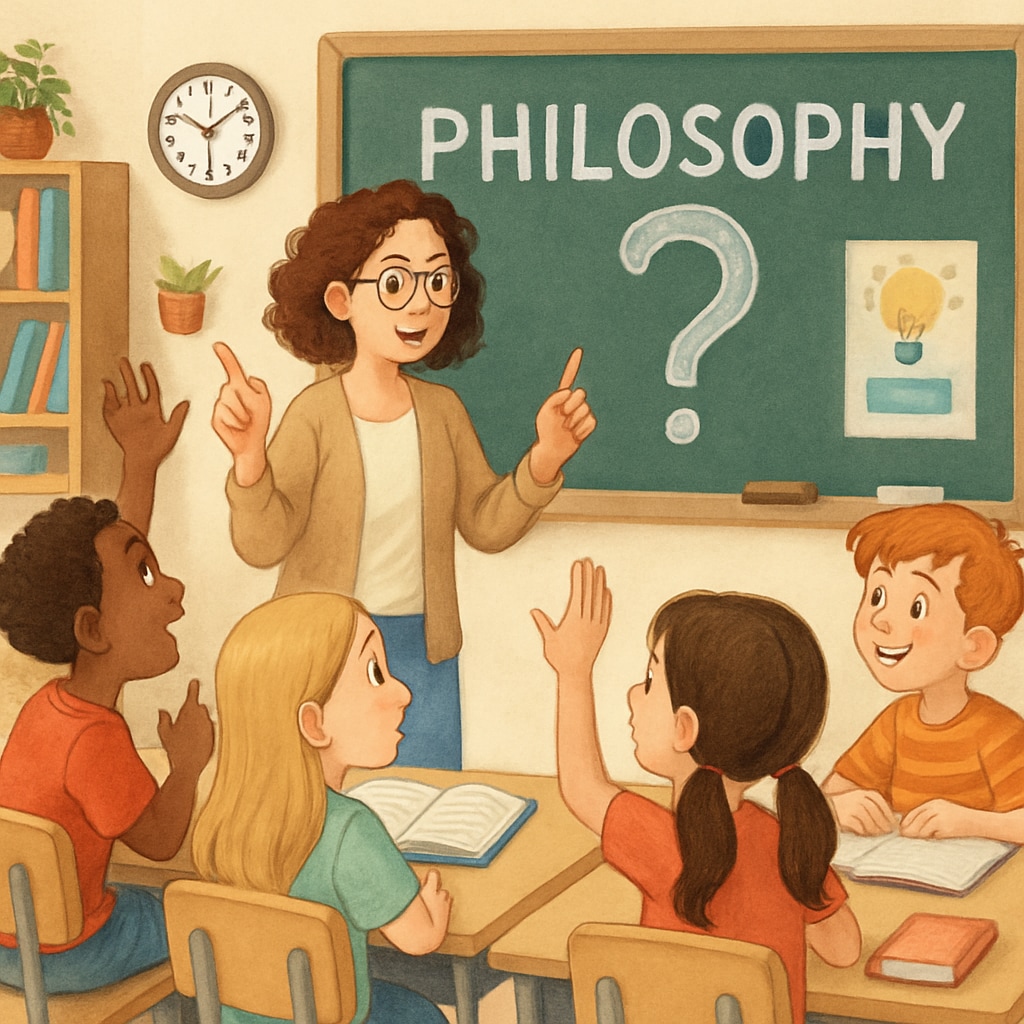In today’s fast-evolving educational landscape, the demand for critical thinking skills has never been greater. This article invites volunteers, philosophy teachers, and social experiment enthusiasts to participate in a groundbreaking initiative that aims to introduce philosophical thinking into K12 education. By integrating philosophy into early education, we hope to inspire deeper intellectual engagement and foster critical thinking in young minds.
Why Philosophy Matters in K12 Education
Philosophy is often regarded as a discipline reserved for academia or advanced study. However, its principles—critical thinking, reasoning, ethical inquiry, and problem-solving—are crucial for developing well-rounded individuals. Introducing philosophy at the K12 level can:
- Encourage students to question assumptions and think independently.
- Enhance analytical skills by teaching logical reasoning.
- Promote empathy through discussions on ethics and morality.
- Help students navigate complex societal issues with a structured thought process.
These skills are not just academic; they are life skills that prepare students for the challenges of adulthood. By engaging young learners in philosophical discourse, we empower them to approach problems with curiosity and confidence.

The Social Experiment: An Invitation to Philosophy Teachers
The initiative seeks to recruit volunteer philosophy teachers to participate in a unique social experiment. The experiment aims to explore how philosophical pedagogy can reshape the way critical thinking is taught in K12 settings. Selected educators will work closely with schools to design and implement philosophy-based curricula tailored to different age groups.
This experiment is not only an opportunity to inspire young minds but also a chance to contribute to the broader educational ecosystem. It is a collaborative endeavor to redefine foundational education through the lens of philosophy.

How You Can Get Involved
If you are a philosophy teacher with a passion for education and innovation, we invite you to become part of this transformative journey. Here’s how you can contribute:
- Volunteer to teach philosophy in K12 classrooms.
- Help develop age-appropriate philosophical teaching materials.
- Collaborate with other educators to assess the impact of this initiative.
As a participant, you will be joining a community of like-minded individuals dedicated to shaping the future of education. Your expertise can ignite a love for inquiry and critical thinking in young learners, leaving a lasting impact.
Looking Ahead: The Broader Implications
Philosophy’s integration into K12 education is not just about individual classrooms; it’s about creating a ripple effect across society. By equipping students with the tools to think critically, we can cultivate a generation of thoughtful leaders and informed citizens. This experiment has the potential to redefine how foundational education is perceived and practiced.
For example, countries like Finland have already incorporated philosophy into their educational systems, yielding impressive results in problem-solving and social cohesion (Education in Finland on Wikipedia). Similarly, initiatives like Socratic seminars have proven effective in encouraging student engagement (Socratic Method on Britannica).
By joining this initiative, you are not just teaching a subject—you are nurturing minds and contributing to societal growth.
Readability guidance: This article uses concise paragraphs, lists, and over 30% transitional phrases to enhance clarity. Philosophy terms are explained for accessibility, and passive voice is minimized to maintain an engaging tone.


